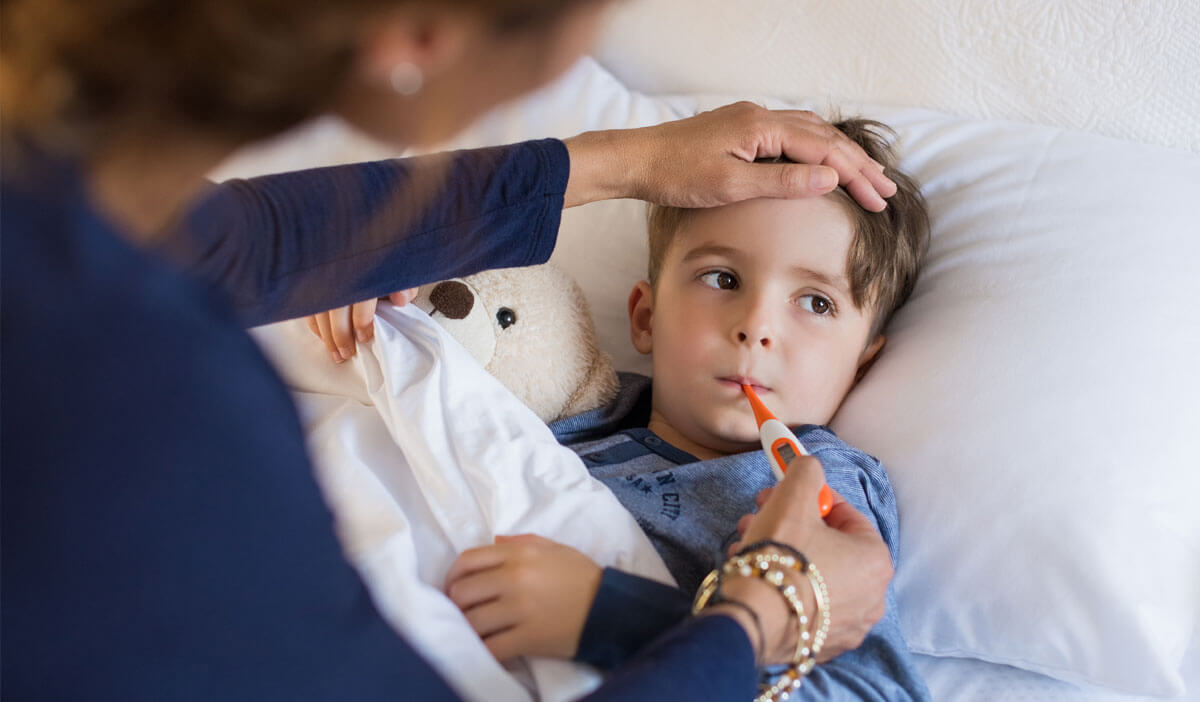The Smart Parent's Guide to Fevers: Why Less Medicine Might Mean Healthier Kids
Hey there, fellow parents! I'm Dr. Jo, who's navigated the ups and downs of raising kids through countless sniffles, coughs, and fevers. Recently, I got a great question from a mom with a 6-month-old who's choosing not to vaccinate—totally her call—and she's concerned about stocking up on fever reducers. With stories circulating about high fevers leading to seizures, hospitals being picky about admissions until a diagnosis, and even that heartbreaking news about a young baby, it's no wonder parents are anxious. But let's talk this through thoughtfully. Today, I'm sharing why the when of using fever reducers matters way more than the what, and how embracing a natural approach can build stronger, more resilient little ones.

Understanding Fevers: Your Child's Built-In Defense System
First things first: fevers aren't the enemy. They're your child's body doing its job—fighting off infections naturally. As someone with a background in biochemistry (and chats with pharmacists who know their stuff), I've seen how our immune systems are designed to handle this. Think about it—humanity has thrived for millennia because we're equipped with this powerful internal armor, not because we popped pills at every turn.
But I get the worry, especially for new parents. If your kid spikes a high fever that's causing distress or seizures, drop everything and head to the ER. No home remedy or over-the-counter fix cuts it there. For milder cases, though? Stocking something simple like Tylenol (acetaminophen) or ibuprofen (like Advil in the US) is plenty. These are safe, effective options to have on hand. The real key is restraint—don't reach for them at the first sign of warmth.

The Pitfalls of Over-Reliance on Meds
Here's where I want to persuade you to think twice: using fever reducers for every low-grade fever might make life feel easier short-term, but it could rob your kids of valuable immune-building opportunities. I've raised kids without constant meds, and they've turned out tough as nails. They caught the usual seasonal bugs, sure, but we managed with rest, not remedies.
Some parents argue, "Why let them suffer? Just medicate and get on with it." But is a mild fever really suffering? Most kids sail through with a bit of downtime. In our house, we'd spot early signs—a runny nose or cough—and pivot: early baths, skipped homework, and lights out sooner. No drama, just smart coaching. This teaches kids to tune into their bodies, fostering habits that last a lifetime.
Over-medicating, on the other hand, can lead to kids who grow up pill-dependent. They learn to mask symptoms rather than build real resilience. Families often split into two camps: heavy medicators or minimalists. And from what I've seen, the minimalists raise healthier kids overall. Medicine isn't evil—it's a lifesaver when truly needed. But if you're healthy enough to skip it, that's a win for your natural defenses.

Coaching Through the Seasons: Practical Tips for Parents
Parenting isn't just about reacting; it's about anticipating. Our bodies work hard to maintain that steady internal temperature—we're not reptiles basking in the sun! Sudden weather shifts, like chilly snaps or heat waves, demand extra energy, making us vulnerable to colds. Factor in a late night, rough playdate, or overexertion, and you've got a recipe for sniffles.
As parents, we're the coaches:
- Watch the weather: "Hey, kiddo, tomorrow's cooling off—layer up!" Or, "It's warming up; stay hydrated to avoid that energy drain."
- Spot fatigue early: If they overdid it yesterday (think endless playground romps), enforce rest today. "You've earned an early bedtime—let's recharge."
- Build habits: Teach them that rest and self-care beat pills. My kids learned this young, and now they instinctively know when to slow down.
By focusing on environment, rest, and prevention, you're not just treating symptoms—you're strengthening their whole system. And remember, there's no magic pill that "cures" a cold; meds just ease discomfort. True healing comes from within.

Wrapping Up: Empower Your Kids Naturally

Parents, let's shift from over-protection to empowerment. Your child's immune system is robust—trust it more, medicate less. If this hits home, check out my video on misconceptions about early cold symptoms (linked below)—it's packed with insights to help you navigate this confidently.
What about you? What's your go-to for fevers, or have you tried the natural route? Share in the comments—I'd love to hear your stories. If you're new here, subscribe for more real-talk parenting advice. Together, we can raise a generation that's strong, savvy, and self-reliant.
Stay healthy,
Dr. Jo

